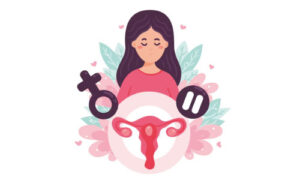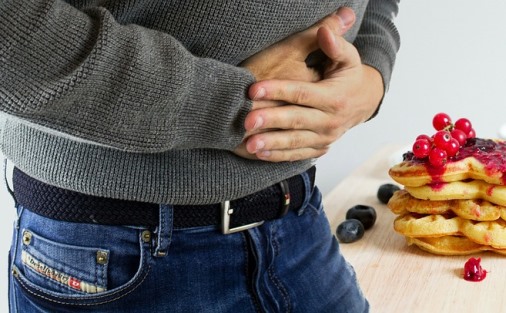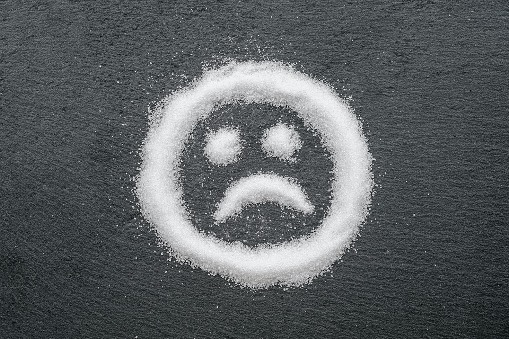LOSS OF LIBIDO IN WOMEN - AN OVERVIEW
Loss of libido in girls, additionally known as hypoactive sexual choice disease (HSDD), is a complicated and multifaceted issue that can be stimulated by using various factors. It’s important to observe that fluctuations in sexual desire are regular and can be stricken by bodily, psychological, and social factors.
If a woman is experiencing a persistent and distressing loss of libido, it is recommended to searching for expert help. Healthcare providers, like Dr Monga’s, which include gynecologists or intercourse therapists, can assist in identifying the underlying causes and advocate suitable interventions. Treatment may also contain addressing physical fitness problems, counseling, way of life adjustments, or, in some instances, medication. Open verbal exchange with both healthcare specialists and, if relevant, a accomplice, is vital for knowledge and addressing this complicated issue.
SYMPTOMS OF LIBIDO LOSS
It’s vital to be aware that fluctuations in sexual desire are a normal a part of life, and HSDD is identified while those symptoms are continual, distressing, and now not attributed to different factors. Additionally, HSDD can have an effect on people regardless of age, relationship reputation, or other demographic elements. Addressing HSDD regularly includes a multidisciplinary method, such as clinical and psychological critiques, to perceive and deal with underlying reasons. If a person is experiencing chronic signs of HSDD, looking for the guidance of a healthcare expert or a intercourse therapist is suggested for a comprehensive assessment and appropriate intervention.
Here are the key symptoms associated with HSDD:
Persistent Lack of Sexual Desire: Individuals with HSDD revel in an ongoing or routine absence of sexual mind, fantasies, or dreams. This is not a temporary fluctuation however a steady pattern over the years.
Reduced Interest in Sexual Activities: There is a great decline in the preference to interact in sexual sports. This can consist of a decreased hobby in beginning sexual encounters or responding to a accomplice’s advances.
Limited Sexual Fantasies: People with HSDD may additionally document a scarcity of sexual fantasies or a discounted capacity to grow to be sexually aroused by means of creativeness or outside stimuli.
Distress and Concern: A key criterion for diagnosing HSDD is that the lack of sexual preference reasons enormous misery or interpersonal problems. Individuals may additionally feel distressed about their disinterest in intercourse, and this misery can make bigger to have an effect on their relationships.
Impact on Relationships: HSDD can result in strained relationships, as the lack of sexual desire may additionally create emotional distance or anxiety between partners. This can contribute to feelings of frustration, guilt, or inadequacy.
Duration of Symptoms: To be recognized with HSDD, the symptoms ought to persist for a minimum duration, commonly as a minimum six months. This criterion facilitates differentiate temporary fluctuations in sexual preference from a extra chronic issue.
CAUSES OF LIBIDO LOSS
Loss of libido, or a decrease in sexual preference, may be inspired by way of a selection of factors, such as physical, mental, and relational problems. Addressing lack of libido regularly requires a holistic method that considers physical, mental, and relational components. Seeking steering from healthcare professionals, inclusive of gynecologists, endocrinologists, or sex therapists, can help discover the underlying causes and tailor the correct remedy plan. Open conversation with a companion is also essential for understanding and navigating the complexities of libido loss in the context of a courting. Understanding the ability reasons is crucial for addressing the underlying issues and locating powerful solutions.
Here are a few common reasons of libido loss:
Hormonal Changes: Hormonal fluctuations, consisting of the ones taking place during menopause, being pregnant, breastfeeding, or as a result of hormonal disorders, can impact sexual preference.
Medical Conditions: Various scientific situations can contribute to a decrease in libido. These might also encompass continual illnesses, diabetes, cardiovascular ailment, and neurological disorders.
Medications: Certain medications, together with some antidepressants, antihypertensives, and hormonal contraceptives, may have facet outcomes that have an effect on sexual preference.
Stress and Anxiety: High stages of pressure, whether or not related to work, budget, or personal life, may be a substantial issue in decreasing sexual choice. Anxiety and other mental fitness issues also can play a role.
Depression: Depression is thought to impact various aspects of lifestyles, along with libido. Feelings of sadness, fatigue, and a faded interest in pleasing sports can make contributions to a loss of sexual desire.
Relationship Issues: Difficulties within a relationship, such as verbal exchange issues, unresolved conflicts, or emotional distance, can lead to a decrease in intimacy and sexual desire.
Body Image Concerns: Poor frame image or low shallowness may have an effect on someone’s self assurance and luxury with their frame, main to a discounted interest in sexual activities.
Fatigue and Lack of Sleep: Chronic fatigue, insufficient sleep, or irregular sleep patterns can negatively impact normal well-being, together with sexual fitness.
Alcohol and Substance Abuse: Excessive alcohol consumption and drug use can interfere with sexual function and contribute to a lower in libido.
Lack of Physical Exercise: A sedentary lifestyle and lack of regular exercise can lead to reduced electricity tiers and negatively effect overall health, along with sexual properly-being.
Psychological Trauma: Past studies of sexual trauma or abuse could have long-lasting outcomes on someone’s courting with their sexuality, potentially main to a lack of libido.
Menopause: The hormonal modifications associated with menopause, which include a decrease in estrogen degrees, can make a contribution to adjustments in sexual desire and comfort.
Cultural and Societal Factors: Societal expectations, cultural beliefs, and upbringing can affect an individual’s attitudes toward sex and impact their comfort and interest in sexual sports.
PREVENTION OF LIBIDO LOSS
It’s crucial to apprehend that sexual preference can naturally range over the years and can be prompted through various factors. However, in case you locate continual modifications in libido which can be causing misery, searching for professional assistance is really helpful. A healthcare company or sex therapist can assist in identifying the basis reasons and growing a customized plan to cope with and prevent in addition problems related to libido loss. While it’s no longer constantly possible to save you all times of libido loss, there are numerous life-style alternatives and strategies that could contribute to maintaining a healthy sexual choice. Here are a few preventive measures:
Maintain Overall Health: Adopt a healthful lifestyle that consists of regular workout, a balanced weight loss program, and good enough sleep. Physical properly-being is closely tied to sexual fitness.
Manage Stress: Practice stress-control techniques which includes meditation, deep breathing physical games, or yoga to lessen strain levels. Chronic pressure can negatively impact libido.
Communication in Relationships: Establish open and honest verbal exchange together with your accomplice approximately sexual wishes, goals, and concerns. Addressing courting troubles directly can assist keep intimacy.
Prioritize Emotional Connection: Focus on building and keeping emotional intimacy in your relationship. A strong emotional connection frequently complements the preference for bodily intimacy.
Body Confidence: Cultivate a high quality body photograph. Acceptance and appreciation of your personal frame can make a contribution to feeling extra cushty and assured in sexual situations.
Limit Alcohol and Substance Use: Avoid excessive alcohol intake and drug use, as these materials can intrude with sexual function and preference.
Maintain Hormonal Balance: For women, especially throughout menopause, discuss with a healthcare professional approximately hormone alternative therapy or other options to deal with hormonal imbalances affecting libido.
Seek Professional Help: If you note persistent adjustments in sexual choice or encounter difficulties, are searching for the steering of healthcare specialists, including gynecologists, endocrinologists, or intercourse therapists.
Regular Health Check-ups: Schedule normal take a look at-u.S.A.To display and deal with any underlying clinical conditions which could effect sexual fitness.
Explore New Activities Together: Engage in new and exciting sports with your associate. Novel reports can bring freshness to the connection and make a contribution to overall nicely-being, including sexual satisfaction.
Educate Yourself: Learn approximately sexual fitness and wellness. Understanding the factors that make a contribution to a satisfying sexual life can empower you to make informed choices.
Self-Care Practices: Incorporate self-care practices into your habitual, including massages, relaxation techniques, or different activities that promote average well-being.
Consider Couples Therapy: If relationship issues are contributing to libido loss, keep in mind couples therapy. Professional steerage can assist address communication demanding situations and support the bond among partners.
LOSS OF LIBIDO DIAGNOSIS
Diagnosing the lack of libido involves a comprehensive assessment that considers bodily, mental, and relational factors. The goal is to discover any underlying problems contributing to the decrease in sexual desire. If a diagnosis of hypoactive sexual desire disease (HSDD) is confirmed, treatment options can be mentioned. Treatment may involve addressing underlying physical or psychological problems, hormonal treatments, counseling, or a combination of techniques. It’s vital to seek the steerage of healthcare professionals who can provide personalized and comprehensive care based at the specific elements contributing to the lack of libido.
Here are the important thing steps and considerations in the analysis of loss of libido:
Medical History: A healthcare provider will conduct a thorough clinical history to gather information about your standard health, past scientific conditions, surgeries, medicinal drugs, and life-style factors. Understanding your clinical heritage allows in identifying potential bodily causes of libido loss.
Review of Medications: Discussing the medicinal drugs you are currently taking is critical, as certain tablets, inclusive of antidepressants, antihypertensives, and hormonal contraceptives, may additionally have side effects that affect sexual desire.
Physical Examination: A physical examination may be carried out to assess ordinary fitness and perceive any physical problems that might make contributions to a decrease in libido. This can also include an exam of the reproductive organs, checking for signs of hormonal imbalances, or assessing typical cardiovascular fitness.
Laboratory Tests: In some instances, blood tests may be encouraged to check hormone stages, consisting of testosterone, estrogen, and thyroid hormones. Hormonal imbalances can contribute to changes in sexual preference.
Psychological Evaluation: A mental fitness evaluation may be carried out to explore any mental elements contributing to libido loss. This may additionally contain discussing stressors, tension, melancholy, or past annoying stories.
Relationship Assessment: Understanding the dynamics of your modern-day dating is crucial. Relationship troubles, verbal exchange issues, or unresolved conflicts can effect sexual preference. A healthcare issuer might also ask about the first-class of your courting and the way it could have modified over the years.
Sexual History: Discussing your sexual history, preferences, and experiences is an vital aspect of the evaluation. This statistics facilitates healthcare vendors recognize the context of your sexual relationships and become aware of potential contributing factors.
Duration and Persistence: The duration and endurance of signs and symptoms are considered. Loss of libido should be chronic for a certain period, commonly at least six months, to fulfill the criteria for a prognosis of hypoactive sexual choice sickness (HSDD).
Exclusion of Other Conditions: It’s critical to rule out different medical or psychological conditions that may mimic or make a contribution to a lower in sexual desire. This consists of conditions like melancholy, tension problems, or chronic illnesses.
Collaborative Approach: In many cases, the analysis and remedy of lack of libido contain a collaborative method. Healthcare companies may fit together, consisting of gynecologists, endocrinologists, psychologists, and intercourse therapists, to cope with the multifaceted nature of the problem.
Patient Input: Your input is crucial in the diagnostic manner. Be open and honest approximately your reports, concerns, and any adjustments you’ve noticed on your sexual choice. This records allows healthcare carriers tailor interventions to your unique desires.
ALLOPATHY APPROACH TOWARDS LIBIDO LOSS TREATMENT
The allopathic approach to treating libido loss includes a thorough assessment of capacity physical, hormonal, and mental elements contributing to the issue. Treatment techniques aim to deal with underlying reasons and may include a aggregate of clinical interventions, way of life changes, and counseling. It’s critical for people experiencing libido loss to communicate overtly with their healthcare providers. Discussing issues, possibilities, and any changes in symptoms over the years helps healthcare specialists tailor remedy plans to fulfill person wishes. Additionally, regarding a companion within the treatment manner, while relevant, can make a contribution to a greater holistic and supportive method to addressing libido issues.
Here are some aspects of the allopathic method closer to libido loss remedy:
Hormone Replacement Therapy (HRT): For ladies experiencing hormonal imbalances, specially at some point of menopause, hormone replacement remedy may be considered. This entails the use of estrogen or a aggregate of estrogen and progesterone to repair hormonal balance and alleviate signs and symptoms impacting libido.
Addressing Medication Side Effects: If libido loss is related to medicines including antidepressants or contraceptives, healthcare companies may additionally discover opportunity medications or regulate dosages to decrease aspect results affecting sexual preference.
Treatment of Underlying Medical Conditions: Allopathic healthcare providers attention on figuring out and treating any underlying scientific conditions that may make a contribution to libido loss. This should involve managing situations like diabetes, thyroid disorders, or cardiovascular troubles.
Counseling and Psychotherapy: Allopathic healthcare providers might also propose counseling or psychotherapy to address psychological factors impacting libido. This may want to involve man or woman or couples counseling to explore and manage stressors, relationship problems, or emotional issues.
Lifestyle Modifications: Encouraging way of life modifications is a key thing of allopathic treatment. This may additionally encompass promoting normal exercising, a balanced food regimen, and good enough sleep to enhance typical health and well-being.
Sex Therapy: Allopathic healthcare providers may additionally refer people or couples to intercourse therapists who concentrate on addressing sexual issues. Sex therapy can offer a supportive and educational surroundings to explore and improve sexual functioning.
Medications Targeting Sexual Desire: While there’s no particular “libido tablet,” a few medicines, which include flibanserin, had been accepted for the treatment of hypoactive sexual desire sickness (HSDD) in premenopausal women. These medicines work on neurotransmitters in the mind to beautify sexual choice.
Clinical Evaluation and Follow-Up: Allopathic healthcare providers conduct a scientific evaluation, which includes normal follow-up appointments, to monitor the effectiveness of the selected interventions and make modifications as wanted. Individual responses to remedies may vary, and ongoing assessment is critical.
Collaborative Care: Allopathic healthcare carriers frequently collaborate with different specialists, consisting of gynecologists, endocrinologists, or intellectual fitness specialists, to ensure a comprehensive technique to treatment. This collaborative effort aims to deal with the multifaceted nature of libido loss.
AYURVEDA APPROACH TOWARDS LIBIDO LOSS TREATMENT
Ayurveda, the traditional system of drugs originating from historical India, approaches the treatment of libido loss via addressing imbalances within the body’s doshas (critical energies), selling basic properly-being, and using herbal remedies. Ayurvedic remedy is holistic, specializing in physical, mental, and non secular aspects. It’s important to be aware that Ayurvedic treatments for libido loss may take time to expose effects, and consistent adherence to the advocated life-style and dietary guidelines is critical. Individuals thinking about Ayurvedic remedy ought to visit a certified Ayurvedic practitioner who can offer personalized advice primarily based on their particular wishes and circumstances. Additionally, collaborative care that integrates Ayurveda with traditional scientific tactics may be considered for a holistic approach to sexual fitness.
Here are key elements of the Ayurvedic technique toward treating libido loss:
Balancing Doshas: Ayurveda identifies 3 doshas—Vata, Pitta, and Kapha—that govern numerous physiological and mental features. Imbalances in these doshas can contribute to sexual health issues. Ayurvedic practitioners aim to become aware of doshic imbalances and restore concord through customized remedies.
Herbal Remedies: Ayurveda makes use of a huge variety of herbs with purported aphrodisiac and rejuvenating properties. These herbs are chosen primarily based on person charter (Prakriti) and the nature of the imbalance. Examples encompass Ashwagandha, Shatavari, Safed Musli, and Gokshura, recognized for his or her positive consequences on sexual power.
Dietary Guidelines: Ayurvedic nutritional pointers play a critical position in retaining standard health, consisting of sexual well-being. Foods that decorate Ojas (crucial essence) and aid reproductive tissues are frequently emphasized. Ayurvedic practitioners may additionally propose a balanced food regimen tailor-made to an individual’s constitution.
Lifestyle Modifications: Ayurveda emphasizes the significance of a healthy way of life to assist normal well-being. This consists of setting up daily exercises (Dinacharya), getting adequate relaxation, and tasty in sports that sell balance and energy.
Abhyanga (Oil Massage): Abhyanga, or Ayurvedic oil massage, is considered beneficial for improving move, relaxing the body, and selling ordinary fitness. Specific oils, along with Ashwagandha or Shatavari-infused oils, may be encouraged for rubdown to decorate sexual vigour.
Panchakarma Therapy: Panchakarma is a chain of Ayurvedic cleaning and detoxification methods. Specific Panchakarma remedies, inclusive of Basti (medicated enema) or Virechana (purgation), may be encouraged based on man or woman imbalances to cleanse the body and promote rejuvenation.
Yoga and Pranayama: Yoga and Pranayama (breath manipulate physical activities) are quintessential elements of Ayurvedic practices. These strategies are believed to balance power, reduce stress, and beautify usual power, which can positively effect sexual health.
Meditation and Mindfulness: Ayurveda recognizes the mind-frame connection. Practices like meditation and mindfulness are endorsed to calm the mind, reduce pressure, and enhance mental readability, contributing to a healthy sexual reaction.
Personalized Approach: Ayurvedic treatment is quite individualized. Ayurvedic practitioners remember someone’s specific constitution, cutting-edge imbalances, and environmental elements when designing treatment plans. This customized method goals to address the root purpose of libido loss.
Consultation with Ayurvedic Practitioners: Seeking steering from qualified Ayurvedic practitioners is critical. They can carry out an in depth evaluation, together with pulse diagnosis (Nadi Pariksha) and examination of the tongue and eyes, to decide the individual’s Prakriti and Vikriti (cutting-edge state of imbalance).
ROLE OF PANCHKARMA IN LIBIDO LOSS TREATMENT
Panchkarma, an essential part of Ayurveda, refers to a fixed of healing techniques designed to detoxify and rejuvenate the frame. While Panchkarma isn’t always in particular focused at treating libido loss, it could play a supportive position with the aid of addressing imbalances within the body’s doshas (important energies) and selling average nicely-being. Individuals considering Panchkarma for libido troubles ought to talk over with a qualified Ayurvedic practitioner. The practitioner will conduct a thorough evaluation to determine the maximum appropriate Panchkarma tactics based at the character’s specific charter (Prakriti) and present day imbalances (Vikriti). Integrating Panchkarma into a holistic approach to sexual fitness may additionally offer advantages, but it should be a part of a broader Ayurvedic strategy tailor-made to the individual’s wishes.
Here’s how Panchkarma may additionally contribute to the treatment of libido loss:
Detoxification: Panchkarma healing procedures purpose to do away with collected toxins (ama) from the body. Detoxification can decorate the functioning of various physical systems, including those related to reproductive fitness.
Balancing Doshas: Imbalances inside the doshas, specifically Vata and Pitta, are often related to sexual health problems. Panchkarma processes are designed to balance these doshas, selling harmony in the physiological and mental elements of the body.
Virechana (Purgation): Virechana is a Panchkarma remedy that entails the administration of purgative substances to remove extra Pitta from the body. This can help address problems related to warmness and infection, which might also impact sexual health.
Basti (Medicated Enema): Basti is a effective Panchkarma remedy regarding the creation of medicated substances thru the rectum. It is thought to stability Vata and nourish the reproductive tissues, doubtlessly addressing imbalances related to libido loss.
Abhyanga (Oil Massage): While now not a direct Panchkarma process, oil massage (Abhyanga) is often endorsed as a part of a pre-Panchkarma habitual. Abhyanga enables put together the frame for the deeper cleansing remedies and helps normal nicely-being, doubtlessly influencing sexual power.
Shirodhara (Oil Pouring on the Forehead): Shirodhara is a relaxing therapy that involves pouring a continuous circulate of heat oil at the brow. It is thought for its stress-decreasing outcomes and might make a contribution to emotional well-being, that is connected to sexual fitness.
Nasya (Nasal Administration of Medications): Nasya is a Panchkarma remedy regarding the administration of medicated oils or powders thru the nasal passages. This therapy is thought to clear the channels and enhance respiratory and sensory features, doubtlessly impacting universal vitality.
Stress Reduction: Panchkarma cures often encompass elements of relaxation and pressure discount. Chronic pressure is a recognised contributor to libido loss, and reducing strain tiers can definitely affect sexual preference.
Holistic Rejuvenation: Panchkarma is taken into consideration a holistic rejuvenation process that addresses the physical, intellectual, and emotional factors of an person. By selling common properly-being, it creates a foundation for improved sexual health.
It’s important to notice that the effectiveness of Panchkarma in treating libido loss might also vary from person to person. Panchkarma is typically endorsed as part of a comprehensive Ayurvedic treatment plan that includes dietary modifications, natural treatments, life-style adjustments, and, if wished, unique interventions targeting the underlying causes of libido troubles.
LIBIDO LOSS TREATMENT AT DR MONGA MEDI CLINIC
At Dr. Monga Clinic, we understand that troubles related to libido loss can significantly effect one’s normal nicely-being and pleasant of life. Our method to treating libido loss is rooted in a comprehensive and personalized method that combines cutting-edge medical practices with holistic elements.
Specialized Consultation and Evaluation: Our skilled healthcare companies behavior thorough consultations, taking into account your clinical history, present day symptoms, and way of life factors contributing to libido loss.
Comprehensive Medical Examination: Dr. Monga Clinic prioritizes a comprehensive scientific examination to evaluate average fitness, along with hormonal tiers and cardiovascular fitness, aiming to discover any physical elements influencing sexual characteristic.
Advanced Laboratory Tests: We make use of today’s laboratory checks to analyze hormone tiers, consisting of testosterone and estrogen, making sure a particular know-how of any hormonal imbalances that can be connected to libido loss.
In-Depth Psychological Assessment: Our approach includes an in-depth mental evaluation to explore emotional and intellectual health factors that might be impacting sexual preference. We create a safe space for discussions on pressure, anxiety, melancholy, or courting dynamics.
Personalized Treatment Planning: Dr. Monga Clinic designs personalised treatment plans tailored to every individual. Our method can also embody medications, hormonal healing procedures, way of life adjustments, and psychological interventions, ensuring a complete strategy.
Integrated Holistic Approach: We embody an incorporated technique that can contain factors of present day medicine, Ayurveda, and different complementary treatment plans. This holistic perspective addresses the diverse aspects contributing to libido loss.
Ongoing Follow-Up and Monitoring: Patient well-being is our priority, and we agenda everyday follow-up appointments to display progress and make vital modifications to the treatment plan. This proactive technique ensures personalised and effective care.
If you’re thinking about libido loss remedy at Dr. Monga Clinic, we inspire you to reach out to us without delay. Our committed crew is available to provide greater distinct statistics approximately our offerings, approach, and the way we can aid you in your journey to stepped forward sexual fitness.
FREQUENTLY ASKED QUESTIONS
The timeline for improvement varies. It depends on the underlying causes and the chosen treatment approach. Consistent adherence to the treatment plan is essential for optimal results
Yes, maintaining a healthy lifestyle, including regular exercise, a balanced diet, adequate sleep, and stress management, can positively impact libido.
Hormonal imbalances, such as those during menopause, can contribute to libido loss. Hormone replacement therapy and other hormonal interventions may be considered for treatment.
Yes, Ayurvedic treatments often include herbal remedies, lifestyle modifications, and Panchkarma therapies to address imbalances and promote sexual well-being.
Yes, if libido loss is persistent and causes distress, seeking help from healthcare professionals, including gynecologists, endocrinologists, sex therapists, or Ayurvedic practitioners, is advisable for a comprehensive assessment and tailored treatment plan.
INFORMATIVE ARTICLES ON WOMEN PROBLEMS

Vaginismus
Vaginismus: Symptoms, Causes, Treatments and Home Remedies Living with vaginismus can be a deeply personal and often confusing experience. You might feel alone, frustrated, or

Loss of libido
LOSS OF LIBIDO – AN OVERVIEW Loss of libido is a complex issue that can have physical, psychological, and interpersonal factors. Addressing the underlying causes

PCOD
PCOD – AN OVERVIEW Polycystic Ovary Syndrome (PCOS), also known as PCOD (Polycystic Ovary Disorder), is a common hormonal disorder among women of reproductive age.











